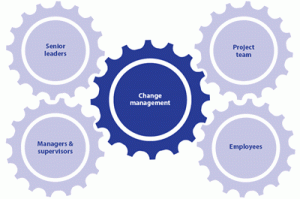Changing the Face of Detailing. How to motivate physicians to see Pharmaceutical sales reps. One pharmaceutical marketing executive recently described the current state of pharmaceutical sales and marketing: “I have two burning issues: (1) I need to know how to make my thousands of field reps more effective just as the market hits over saturation and physicians are turning them away and (2) I need to know what our role is going to be in patient–physician communication.”
The practice of detailing has come under growing scrutiny across provinces. For example, two-thirds of doctors in B.C. say drug reps visit them at least once a month, according to a survey by the B.C. Medical Association. Forty-two percent of general practitioners are visited several times a week. However, there are challenges:
- 43% of Pharmaceutical Reps Never Get Past the Receptionist
- Only 7% of rep visits last more that 2 Minutes
An Arcus study found that high prescribing physicians receive “three to five times as many calls from sales reps as they did 10 years ago. Today’s pharmaceutical rep is vying with a massive army of competitors for diminishing physician time. Many sales reps even have to compete with others from their own company.

Since 1995, the physician population has grown just 15%. During that same period, the number of pharmaceutical reps has grown 94%. The result has been a significant decline in physician access. A study of time spent by sales reps during office visits found that only 7% of rep visits with a prescriber lasted longer than two minutes. Forty-three percent of the visits never got past the receptionist. The same study found almost 40% of doctors’ offices limit the number of reps seen in a day. Similarly, a survey reported that 35% of physicians are not seeing reps at all. Codes of conduct specifically bans promotional practices such as “dine and dash” that had been traditionally used to gain physician access.
The expanding medical needs of the geriatric and aging baby boomer populations have caused physicians who are the heaviest prescribers to spend more than 65 hours per week with patients. Pharmaceutical marketing has traditionally relied on a foundation of healthy interaction between the detail representative and the physician. In recent years, however, there has been well-documented erosion in the power of face-to-face detailing to drive prescriptions. By confronting this situation, pharmaceutical companies can begin to reverse this trend.
What Physicians want
The traditional role of the sales representative is changing and physicians are saying they need more from the pharmaceutical industry. Physicians are asking for a major shift in the sales model, so that representatives can become partners and consultants, offering customized solutions to fit individual practice needs.
Physicians have higher expectations today, especially from pharmaceutical sales representatives. The interaction has evolved from one that was transaction-based to a deeper, information-based relationship. Physicians expect pharmaceutical sales representatives to better understand the medical practices they serve. If they want to increase their time with physicians, they must deliver more targeted, clinical information to meet physicians’ needs.
Physicians say they wanted knowledgeable sales representatives-better educated and professionally trained representatives. They wanted sales reps to have a good knowledge of clinical studies, an ethical outlook and the willingness to follow-up. Physicians would welcome clinical health educators (who would work with the practice staff to improve patient outcomes) and customer service representatives (who would not sell, but provide samples and patient support materials).
As per a hospital administrator, educating physicians is going to depend if you use a “push or a pull mechanism”. Often times they are very busy and pushing information, data or education is more successful than forcing MDs to go lookup something. “If you do choose to have meetings or conferences, getting physicians to show up is essential. Can the physician earn Continuing Medical Education Credits? If so, advertise it like so. If it is a product that would be used in the doctors office, I would suggest you approach the office manager and get his/her buyin.”
Predicting the Future
By sponsoring and participating in the channel that connects physicians to patients, pharmaceutical marketers will be positioned to ask patients questions in real time. This will be accomplished using non-commercial, non-promotional, physician-hosted web sites that patients visit often and are comfortable enough with to willingly provide personal feedback on attitudes, preferences, and drug side effects.
Answers to these demographic and preference questions may then be correlated with educational content viewing patterns, as well as what is known about the patient’s own physician to form unique patient profiles or “pictures” that pharmaceutical marketers previously had limited or no access. With access to constantly “moving,” real-time aggregate patient-based data, marketers can adjust marketing plans, services, and promotions. By arming sales teams with this information to share with physicians, a new “detailing” relationship will emerge in which a physician will want to meet with the sales reps who have already analyzed the latest aggregate patient data and can help the physician learn more about his or her own patients.
What physician would not want to know their patients’ opinions about the medications they have been instructed to take? To obtain ongoing access to physicians, pharmaceutical sales reps will need to provide information to physicians on the preferences, opinions, and resulting behaviours of each physician’s own patients. As these patient data reports get more comprehensive and interesting, and sales reps become more proficient at using the data to help physicians provide better care, a new phenomenon may occur: physicians calling their pharmaceutical reps to schedule the next appointment!
